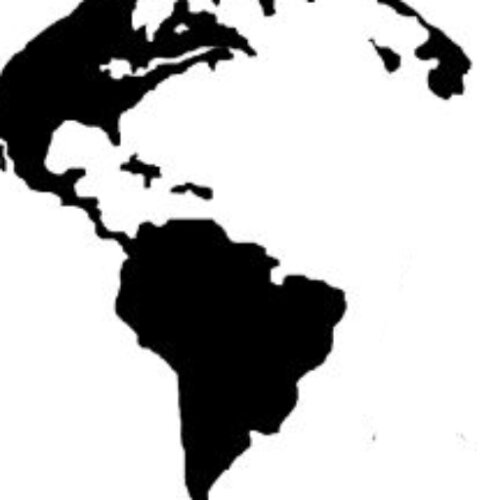Best Divorce & Separation Lawyers in Chile
Share your needs with us, get contacted by law firms.
Free. Takes 2 min.
Free Guide to Hiring a Family Lawyer
Or refine your search by selecting a city:
List of the best lawyers in Chile
About Divorce & Separation Law in Chile
Divorce and separation laws in Chile are governed by the Chilean Civil Code and other relevant legislation, aiming to address both the financial and emotional aspects of ending a marriage. With the introduction of the divorce law in 2004, Chile moved from a system with no divorce to one that allows couples to legally dissolve their marriage. Key processes include "mutual agreement divorce," "unilateral divorce," and "divorce due to fault." Each process has distinct requirements and implications for property division, child custody, and alimony.
Why You May Need a Lawyer
There are several situations in which seeking legal assistance is crucial:
- Understanding Your Rights: Divorce involves complex laws and it’s important to know your rights regarding property, custody, and support.
- Paperwork Assistance: A lawyer can help prepare and file the necessary legal documents correctly.
- Complex Asset Division: High-value assets or businesses can complicate proceedings, requiring professional evaluation and division.
- Child Custody and Support: Custody battles and support calculations often require legal expertise for fair outcomes.
- Emotional Support: Lawyers offer crucial support during an emotionally challenging time, ensuring decisions are made logically.
Local Laws Overview
In Chile, divorce law reform in 2004 introduced processes that enabled couples to legally end their marriages. The key aspects include:
- Mutual Agreement Divorce: Both parties agree to terminate the marriage and file jointly. A minimum separation period of one year is required.
- Unilateral Divorce: Initiated by one spouse, this requires proof of living apart for three years.
- Divorce Due to Fault: In cases of serious marital offenses like abuse or adultery, divorce can be applied immediately without a separation period.
- Custody and Support: Child custody is determined based on the child's best interest, while financial support obligations are calculated based on earnings and needs.
- Property Division: Chile follows a community property system, meaning assets acquired during the marriage are divided equally unless otherwise agreed.
Frequently Asked Questions
What are the grounds for divorce in Chile?
Divorce can be requested through mutual consent, separation (unilateral), or based on fault (severe marital violations).
How long does the divorce process take?
Timelines can vary. Mutual agreement divorces might take a few months, while unilateral or fault-based divorces can take longer, depending on complexity.
Is legal separation required before divorce?
Yes, for unilateral divorces, a separation period of three years is mandatory. However, it’s one year for mutual consent.
What happens to property after divorce?
Typically, property acquired during marriage is divided equally, though prenuptial agreements can alter this outcome.
Who gets custody of the children?
Courts decide custody based on the child's best interests, often favoring joint custody if possible.
What is required for a mutual consent divorce?
Both spouses must agree to the divorce terms, including arrangements for children and property division.
How is child support calculated?
Child support is based on the non-custodial parent's income and the needs of the child.
Can I get divorced if my spouse is not in Chile?
Yes, but proceedings can be more complex and may involve international law considerations.
Is it possible to appeal a divorce decision?
Yes, like other civil rulings, divorce decisions can be appealed within a specific timeframe outlined by the court.
How can domestic abuse impact the divorce process?
Domestic abuse can accelerate the divorce process as it's considered sufficient grounds for divorce due to fault.
Additional Resources
Consider reaching out to the following for support and information:
- Chilean Judicial Branch: Provides details on divorce proceedings and documentation.
- Ministry of Justice and Human Rights: Offers resources and legal aid options for families in conflict.
- Family Courts: Where divorce cases are heard; they provide guidance on procedures and necessary documentation.
- NGOs: Several non-profits may offer legal advice and emotional support for affected families.
Next Steps
If you need legal assistance with divorce or separation in Chile, consider the following steps:
- Consult a specialized family law attorney to understand your rights and options.
- Gather essential documents, including marriage certificates, financial statements, and any evidence relevant to your case.
- Consider mediation if both parties are willing, as it can simplify the process and reduce conflict.
- Prepare for potential court appearances, if necessary, by understanding the process and setting realistic expectations.
- Stay informed about your case and maintain open communication with your legal advisor.
Lawzana helps you find the best lawyers and law firms in Chile through a curated and pre-screened list of qualified legal professionals. Our platform offers rankings and detailed profiles of attorneys and law firms, allowing you to compare based on practice areas, including Divorce & Separation, experience, and client feedback.
Each profile includes a description of the firm's areas of practice, client reviews, team members and partners, year of establishment, spoken languages, office locations, contact information, social media presence, and any published articles or resources. Most firms on our platform speak English and are experienced in both local and international legal matters.
Get a quote from top-rated law firms in Chile — quickly, securely, and without unnecessary hassle.
Disclaimer:
The information provided on this page is for general informational purposes only and does not constitute legal advice. While we strive to ensure the accuracy and relevance of the content, legal information may change over time, and interpretations of the law can vary. You should always consult with a qualified legal professional for advice specific to your situation.
We disclaim all liability for actions taken or not taken based on the content of this page. If you believe any information is incorrect or outdated, please contact us, and we will review and update it where appropriate.
Browse divorce & separation law firms by city in Chile
Refine your search by selecting a city.














